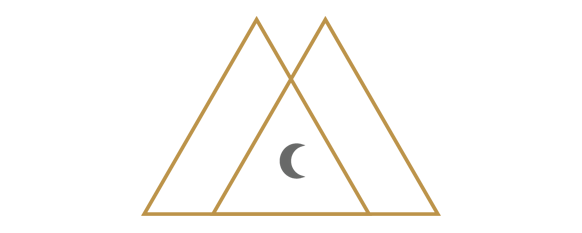Acupuncture Academic Research Library

Acupuncture Academic Research Library

This page is a work in progress, and will be continually updated!
Good research for acupuncture is hard to come by, but more is being done every day.
- Acupuncture is a “retrospective science” as described in this article. It has 3,000-5,000-year-old roots. It was developed using language and theories that are very difficult to translate into Western terms.
- Acupuncture is an Eastern style of medicine and simply does not fit neatly into the Western model of research. How do we design a double-blind study? We can’t! How do we design placebo acupuncture? It’s very difficult. So-called “sham acupuncture” is an inherently flawed substitute for a true placebo, and yet this is what we have to use to try and fit into a modern Western clinical research design. “Sham acupuncture” often produces results, and skeptics use this to argue acupuncture doesn’t work. However, from an understanding of the theory behind Chinese Medicine, many of these “sham” procedures are in fact affecting your qi (physical system). Acupuncture research is tough.
- There is little financial incentive to offer an alternative to medication and surgery. Pharmaceutical companies fund the vast majority of medical research in this country. Acupuncture research threatens the foundation of American healthcare. I encourage you to read about the broken system of big science.
What the studies below have in common is that Acupuncture, and in some cases “sham” acupuncture, meaning acupuncture at non-specific points, are demonstrating measurable results. We can only hope that advancing technology allows us to better and more accurately study the effects of acupuncture on the body so that even the most conservative doctors and scientists must take note of this powerful medicine.
Acupuncture & Acne
Acupuncture & Addiction
- NADA Protocol for Addiction
- Auricular Acupuncture for Cocaine Dependence
- Acupuncture Helps Smokers Quit
- Effects of Acupuncture on Smoking Cessation
Acupuncture & Allergies
Acupuncture & Anxiety
- Acupuncture Relieves Generalized Anxiety
- Acupuncture Reduces Anxiety in Mother’s and Children
- Acupuncture Improves Insomnia
- Acupuncture Impacts Prefrontal Cortex to Ease Anxiety
- Acupuncture As Effective As Therapy for Anxiety
- Acupuncture Reduces Test Anxiety and Improves Performance
Acupuncture & Arthritis
Acupuncture & Asthma
Acupuncture & Bell’s Palsy
Acupuncture & Bladder
- Acupuncture Treats Overactive Bladder
- Read a summary of these studies in my blog post.
- Acupuncture Effective for Interstitial Cystitis
- Acupuncture Treats Postpartum Urinary Retention
Acupuncture & Cancer
- Acupuncture relieves fatigue, chemo-induced nausea and vomiting
- Acupuncture Reduces Cancer-Related Pain
- Auricular Acupuncture Reduces Pain in Cancer Patients Receiving Chemotherapy
Acupuncture & Depression
- Acupuncture Outperforms Counseling for Depression with Pain
- Acupuncture Treats Major Depressive Disorder in Women
- Acupuncture Effective Treatment for Depression
- Acupuncture Changes Amygdala to help Depression
- Acupuncture Effective for Depression and Chronic Depression
- Everything you know about depression is wrong
Acupuncture & Digestive Disorders
- Acupuncture as Effective as Mosapride Medication for Functional Constipation
- Chinese Medicine Helps IBS
- Acupuncture Effective in Crohn’s Disease
Acupuncture & Headaches/Migraines
- Acupuncture Reduces Pain and Need for Analgesics in Migraines
- Acupuncture Modulates the Brainstem to Effectively Treat Migraines
- Acupuncture Relieves Headaches and Migraines
- Acupuncture Relieves Migraines
- Acupuncture Better than Aspirin for Chronic Headache
- Acupuncture Improves Headaches
- Acupuncture Reduces Migraine Frequency
- Acupuncture for Prophylactic Treatment to Prevent Migraine Headaches
Acupuncture & Inflammation
- Connective Tissues Changes after Acupuncture
- In-depth on Connective Tissue and Acupuncture
- Acupuncture increases adenosine, potent anti-inflammatory compound
- Hacking the Nervous System
Acupuncture & Insomnia
- Acupuncture Improves Depression and Insomnia
- Acupuncture Improves Sleep in Peri and Post-menopausal Women
Acupuncture & Immunity
Acupuncture & Menopause
Acupuncture & Pain
- Plantar Fasciitis
- Neck Pain
- Fibromyalgia
- Neuralgia
- Prostatitis/Pelvic Pain
- Systemic Pain Effects
- Knee Pain
- Acupuncture in the Hospital
- Low Back Pain
- Carpal Tunnel Syndrome
- Adhesive Capsulitis
Acupuncture & PMS, Menstruation,Ovulation
- Acupuncture Treats PMS
- Acupuncture Cost-Effective Dysmenorrhea (Painful Periods) Treatment
- Acupuncture Effective for PCOS
- Acupuncture Induces Ovulation in PCOS
Acupuncture & Pregnancy
Acupuncture Safe for Children
Acupuncture for M.S.
Acupuncture & Stress
- Acupuncture and Adrenal Gland Function
- Acupuncture Controls Hormones to Reduce Stress
- How Acupuncture Works to Relieve Stress
Acupuncture & Trauma
Acupuncture & Weight-Loss
- Auricular Acupuncture Suppresses Appetite
- Obesity Treated by Acupuncture
- Acupuncture Better than Diet/Exercise Alone
Mechanisms of Acupuncture
- How Acupuncture Reduces Pain
- Acupuncture Mechanism Research
- Paradoxes in Acupuncture Research
- The Brain on Acupuncture
- CT Scan Reveals Acupuncture Points
- Neuroimaging of Acupuncture
- Signaling Through Connective Tissue
- The Brain Response to Common Acupuncture Point
- Acupuncture Points are Anatomically Unique
- Acupuncture does this: Hacking the Nervous System
- Acupuncture Causes Changes in Connective Tissue
Research on other Amaluna Wellness Practices
Chinese Medicine is Powerful
Heat Not Ice for Injuries
Probiotics
Homeopathy
Cut Down on Sugar
Benefits of Meditation
Importance of Sleep
Exercise and Stress
Eat the Right Kinds of Fish
Gua Sha Works
Risks of Common Western Medications
